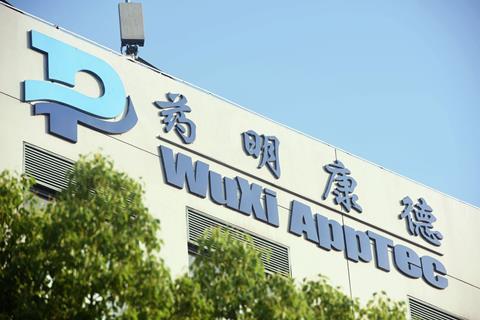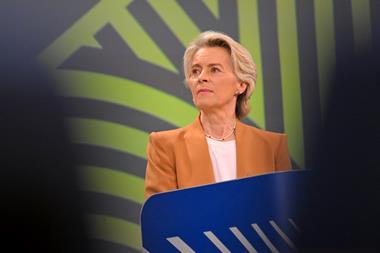WuXi Apptec and others accused of national security risk, as trade groups back legislation limiting their activities

Pharmaceutical service provider WuXi AppTec, genomics group BGI, and other Chinese biotech companies operating in the US are facing legislative efforts to limit their ability to work with US government agencies or companies that hold (or wish to hold) government contracts.
Democrats and Republicans in Congress introduced legislation dubbed the Biosecure Act in January that could prohibit federal funds from going to biotech companies connected to ‘foreign adversaries’, including WuXi, BGI and several other specifically named firms, on a national security basis. The Senate version of the legislation, which aims to prevent the theft of sensitive American genetic data and personal health information, was approved by the Senate Homeland Security Committee approved on 6 March. That measure will now be taken up by the full Senate.
Earlier this year, interim chief executive of the Biotechnology Innovation Organization (BIO) trade group, Rachel King, had expressed significant concerns that the legislation identifies specific companies to be punished without the proper review process. BIO had also advocated on WuXi’s behalf.
However, on 13 March, the group’s new chief executive, John Crowley, announced BIO would be supporting the legislation. At the same time, WuXi AppTec terminated its membership of the organisation.
‘Our adversaries abroad have stated that they intend to become the biotechnology centre of excellence in the world,’ stated Crowley. ‘America and our allies cannot let this happen. Securing and advancing our pre-eminence in biomanufacturing will be one key component of a multi-prong approach to secure and advance this strategic imperative in biotechnology,’ he added.
The development follows significant congressional pressure on BIO, including requests from lawmakers for reviews of its lobbying activities on behalf of WuXi. The US legislature’s move against China is not confined solely to biotech: the announcement coincided with the House of Representatives approving a bill that could ban the popular Chinese social media platform TikTok in the US unless it separates from its Chinese parent company.
For its part, WuXi Apptec’s leaders have defended the company’s activities. ‘Like many of you, we are concerned by a misguided US legislative initiative to target our company without a fair and transparent review of the facts,’ they wrote in an open letter to customers. ‘We want to be clear and set the record straight: WuXi AppTec does not pose a national security risk to any country.’
WuXi Apptec’s leaders said they’re ‘actively correcting the unfounded and misleading claims’ about their company as deliberations on this legislation continue on Capitol Hill.
Philip Altbach, professor emeritus at Boston College’s Center for International Higher Education in Massachusetts, US, has a mixed view of BIO’s actions. ‘This is part of the increasingly politicised “decoupling” from Chinese science – which is a bad thing for all concerned,’ he tells Chemistry World. ‘There is some validity to the theft of intellectual property and actual espionage, but it is in my view exaggerated,’ Altbach adds. ‘It is very important for science to remain open. Trust but verify might be the best principle.’
Xiaoxing Xi, a Temple University physics professor who was arrested in 2015 and charged with spying but was later vindicated when the US government dropped its case against him, adds: ‘None of these developments are surprising, they are all inevitable.’

















No comments yet